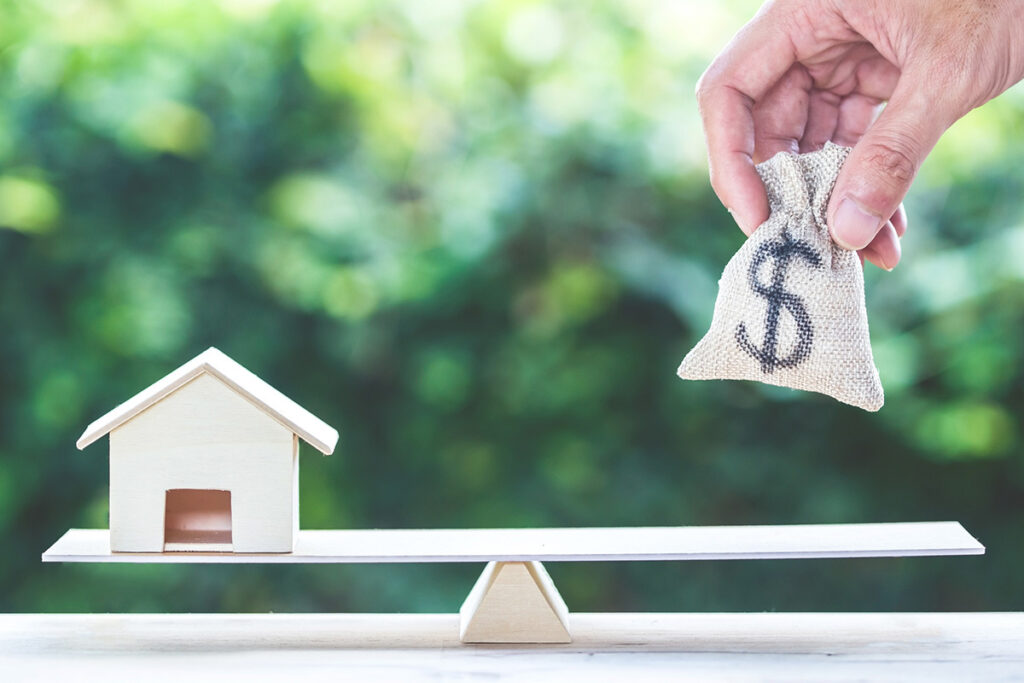Beyond Question: Isn’t All Personal Debt Bad?
From time to time, the hard-working people who enter the Beyond Finance personal debt consolidation program to reduce their monthly payments have questions along the way. Learning something in our free financial therapy classes may not spark these financial questions.
Sometimes, a credit card commercial has a talking point that creates blank thought bubbles and confused faces. One we hear more than most is, “Isn’t all personal debt bad?”
It was personal debt that brought them to us seeking help. The collection calls during dinner. Those white bills are turning pink in the mailbox. And what about the insurmountable mental health issues that Acute Financial Stress causes? None of that is a picnic.
So, when a commercial or paid spokesperson says online or on TV that “you need a positive debt record” to purchase this house, it’s easy to understand why that makes no sense. The misunderstanding is that the perception of debt is confusing, not that statement.
This month’s “Beyond Question” discusses the differences between bad and good personal debt.
A Look at “Bad” Personal Debt

The type of personal debt that brings people to seek help with their economic struggles conjures only negative feelings and awful memories. There you are, things are going well as you drive to the grocery store, when…BAM!
Someone ran the red light and smacked directly into the passenger side of your SUV. Fortunately, no one was hurt, but that damage costs time, stress, and money. Even with insurance, you may have to get a rental, rideshare, or bus pass. And what if the insurance fights you? That wreck is a more significant problem; you didn’t schedule it, so you must consider credit cards.
Sound familiar?
It could happen to anyone. You pay your bills, but it doesn’t take long for debt to spiral out of control when that unexpected emergency occurs. The only “benefit” to that debt is getting your car back. Now, you must pay it back, usually through credit cards. That kind of personal debt hurts and may cause more harm than good.
“Bad debt” is borrowing money from a bank or credit card company not designed for long-term benefits.
It allows you to make a transaction for the short term, leaving you with a burden of debt that may exceed your budget. This creates that budget gap, forcing you to make minimum monthly payments for an undetermined time. There is no investment in your life, and few “bad debt” expenses are secured or backed by collateral.
These aren’t tax deductions, usually have an interest rate above 6%, and lose value within weeks. Although some “bad debt” purchases are necessities for a maturing individual or a growing family, they can still create mental health and financial wellness issues if they are not managed effectively.
Examples of bad debt include:
- Retail store credit cards (e.g., Macy’s, Nordstrom, Marshall’s, Target)
- Entertainment or Furniture credit (e.g., a 75” TV, a sectional sofa, a bedroom suite)
- Consumer loans (e.g., credit card consolidation, refinancing)
- Mainstream credit cards (e.g., Visa, Mastercard, AMEX, Discover)
- Using credit for travel or vacations
- Paycheck advances
- Yes, even a car loan
Exploring “Good” Debt

Do you own a house? If not, do you plan on doing that someday? It’s a day you never forget. That prominent place with bedrooms, bathrooms, and even a yard (back, side, or otherwise) is yours. Well, it will be in 30 years, but you understand.
Your house payments exist because you borrowed the money to have it. That type of personal debt rewards you–an investment for your future and one that appreciates over time. There are also the tax benefits created and the equity it produces.
This is “good debt.”
Here’s a tricky one that makes you cringe reading it: School loans.
It’s necessary because of the excessive costs associated with higher education or trade school. While you might pay for your school loans for years or even decades into your career, was it worth it?
Do you have a viable career because of that certification or diploma? Did that choice prove benefits today, like the car you drive, the house you lease or own, or even the family you support?
That could also be “good debt” because of the long-term benefits provided as a result. Sure, you wish you didn’t have it, but a life without it has disadvantages too.
“Good debt” helps create income, opportunities, and a personal net worth. Some investments can make more money. You may be “going into debt” with certain decisions, but good debt decisions will benefit you and your loved ones.
Examples of good debt include:
- Home ownership. Leasing puts you in a place to call home, but it is never yours to create a future benefit.
- Tuition assistance for college or trade school.
- A personal loan to build a business or fulfill a dream that will create long-term stability.
- If you plan on keeping your car through the loan duration, that becomes good debt because it pays off for you after it’s paid off to the bank.
How to Balance Good and Bad Debt?

Learning how to spin plates on those flexible pipes seen in the circus is unnecessary. Balancing good and bad debt is easy if you are disciplined. News Flash: You will have debt. There are few ways to get around it for the average American, who carries $21,800 monthly.
To someone struggling to pay bills, that sounds horrendous. However, to someone with more financial practice under their belt, this sounds, well, normal.
If you were a student, you’d pick up a school loan. Did you drive around campus or back home? That’s a car loan (and gas, insurance, and repairs). Where do you live? That’s mortgage or rent. And then there are the monthly credit card bills you carry to have them at your disposal.
There is nothing wrong with that—no shame involved. Most people have that personal debt as well. It is manageable, but only if you understand and adhere to your budget. Credit cards are a luxury, but only a temporary one. It’s not your money and must be paid back. If it gets out of hand, that becomes bad debt.
Billionaire Businessman and Philanthropist Warren Buffet once penned, “Chains of habit are too light to be felt until they are too heavy to be broken.” That’s the secret of balancing debt–understanding what to spend and pay back and what can be set aside for better days.
Investing in your future costs money, but the payback can be the most rewarding thing you’ve ever experienced. There is good debt, and none of it has to be “bad” if you know how to manage it.
